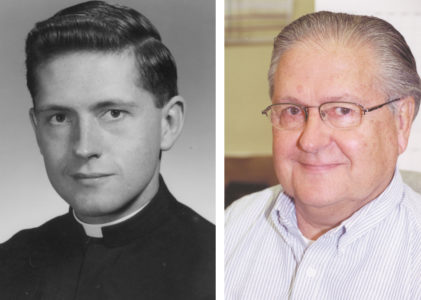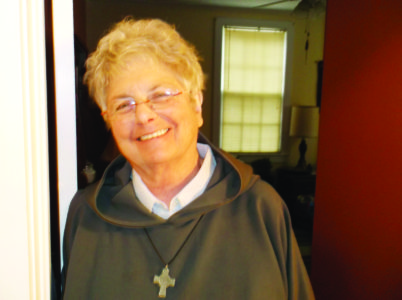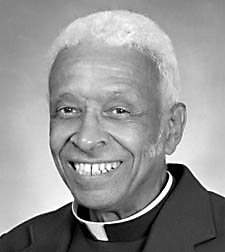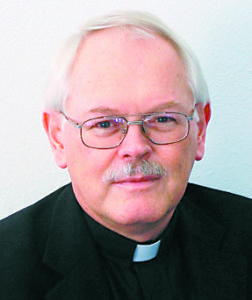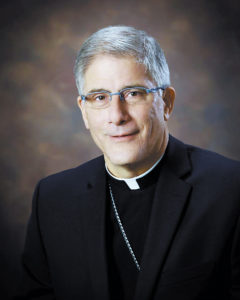JACKSON – The delegation representing the Diocese of Jackson at the V Encuentro’s national culmination returned home from Grapevine, Texas, with a new mission – to take all they learned and experienced and turn it into a plan of action for ministry at home.
Delegates from all over the country, selected after parish, diocesan and regional meetings, participated in the V Encuentro in September. Mississippi Catholic asked each delegate, as well as Father Michael McAndrew, CsSR, who attended with his order, to send us some thoughts on their experience.
Isamar Mazy – Cathedral of St. Peter the Apostle:
“My experience was very nice seeing the church, in these difficult times, joining in prayer and the humility of bishops asking us to pray for them. I was impressed by the multitude of people, around 3,200 individuals from all over the United States.
On behalf of the CELAM (Latin American Episcopal Council) Monsignor Constantino Barrera Morales and the Bishop of Sonsonate of El Salvador brought young people from Costa Rica and Brazil to listen our experiences. We had the pleasant presence of the Apostolic Nuncio commissioned by Pope Francis and his encouraging message was of great joy to us when he told we “are a people on march.”
Susana Becerril,
“Everything has helped me to learn urgent things that, maybe, I didn’t think necessary. I liked there was a talk for integration of the American with the Latin / Hispanic community. They pointed out that we are not guests of the church, we are the church, we have a voice, we have a right, but most of all we have the obligation to do something for those who need it most.”
Danna Johnson, Pontotoc St. Christopher Parish:
“Bishop Daniel Flores of the Diocese of Brownsville, Texas, told us in his presentation that to accompany “there must be a desire to do so.
“Accompanying is presence, time, patience, listening, closed and contemplative gaze, it is our ‘Move and stop before the other person’ in the style of Jesus. This requires us to ‘uninstall our comfortable condition of viewers’ he told us. I return to my ordinary life with those words in my memory and heart.
“The faith of the poor is what saves us” Bishop Flores said.
How do those words speak to me in my life? The V Encuentro was an opening opportunity to see with new eyes the same needs – particularly those of the Hispanic people in the Catholic Church in the United States and here in Mississippi. There was much talk about the lack of spiritual attention (especially among young people), the obstacles to integration and the lack of comprehensive formation at all levels of church leadership.”
Sister María Elena Mendez, coordinator for Hispanic Ministry:
“The V Encuentro was like a new Pentecost for the Catholic Church of the United States. Participating in the process of the V Encuentro was a moment of grace, a caress, an emotional embrace and a light that is lit in the darkness in the middle of this difficult moment for the Church.

Delegates dance on stage Sept. 23 during the Fifth National Encuentro in Grapevine, Texas. (CNS photo/Tyler Orsburn)
“In general, the bishops motivated us to be protagonists, to form ourselves, to pass from spectators to take leadership, to go in search of those who have left the Church for any reason and to be missionaries, witnesses of the love of God.
“The one that stood out very strongly was the youth pastoral and the necessity of the roles of leadership of the women saying, ‘listen to us, join us, form us and invest economically in us, we are ready to take positions of responsibility in the parochial and diocesan structure… trust us.’
“At the end of, I felt motivated and confirmed by what Carl Anderson, Supreme Knight of the Knights of Columbus, said about the Virgin of Guadalupe: ‘Our Lady of Guadalupe is working in the Church of the United States through faith and the actions of numerous followers. She is very relevant now, there is a miracle of Guadalupe today in this country.”
Father Michael McAndrew, Redemptorist serving in the Delta:
“While the liturgies were beautiful, great music and there was much to learn, the most important part was meeting people from all over the nation and listening to them share stories of trial, hope and faith. The young people at the V Encuentro energized the event and challenged church leadership to be creative in reaching out to the next generation of leaders. I wish that more people could experience such energy in the church. Since I have been involved in Hispanic ministry for almost thirty years, it was great to see so many people from the many parts of this country whom I have met over the years. It was good to see those long time friends, but it was also great to see the new generations of leaders with such energy.

